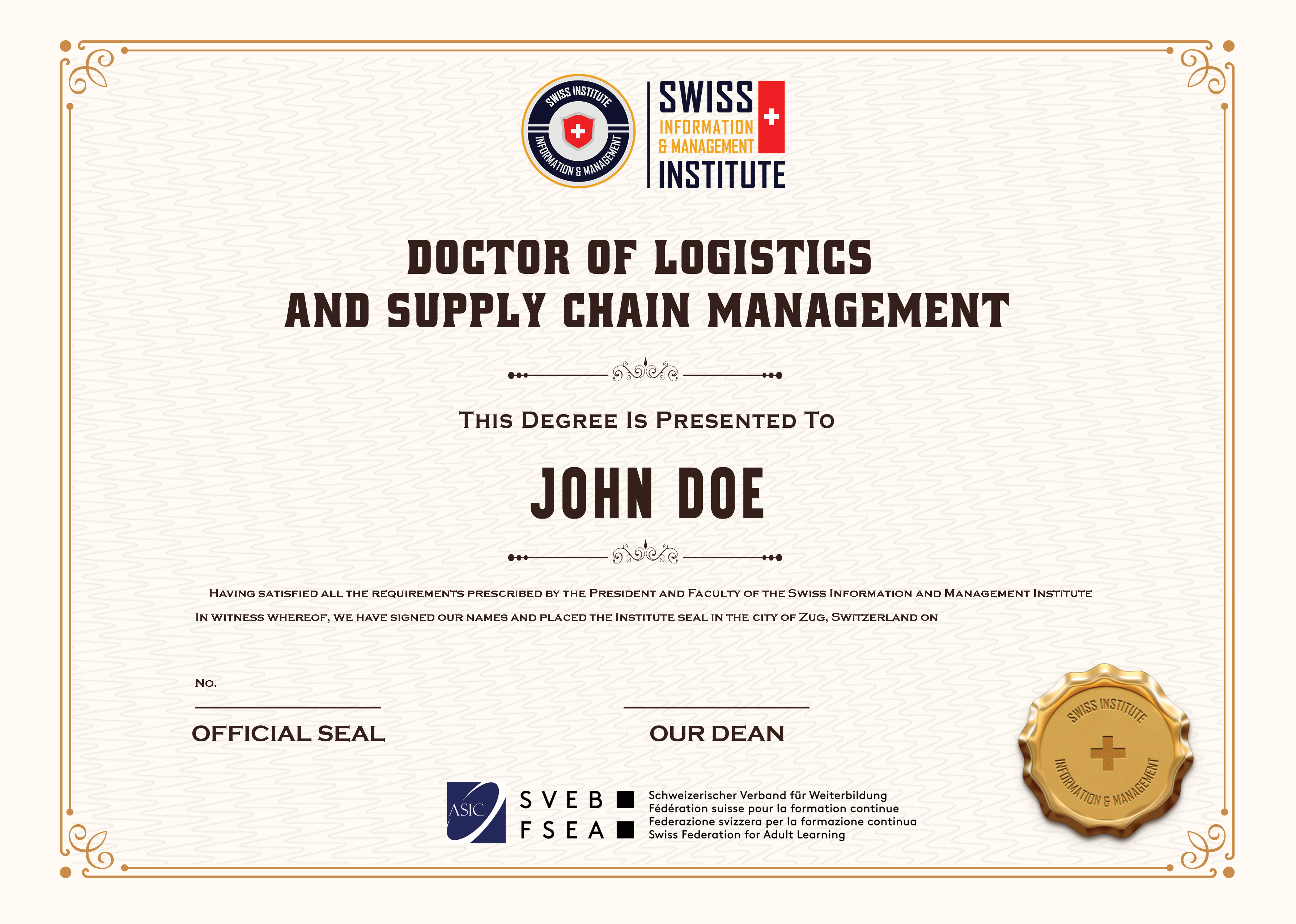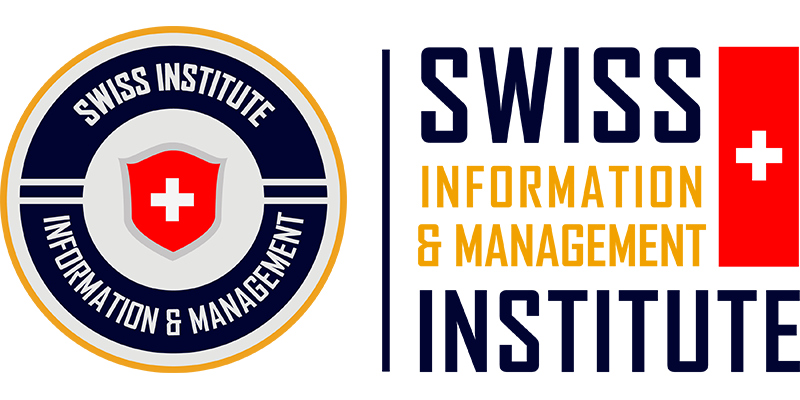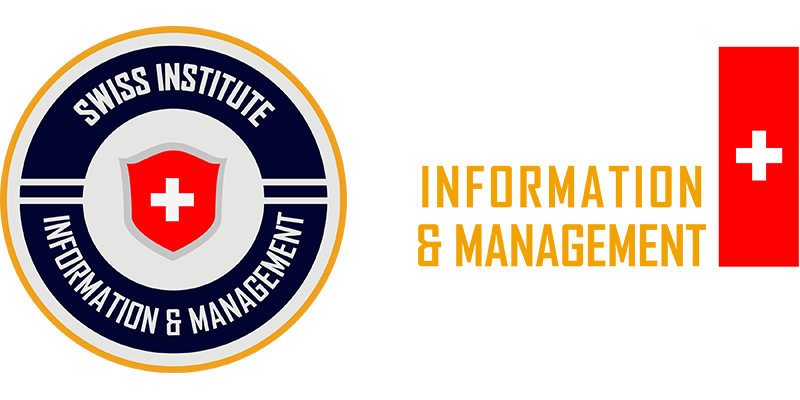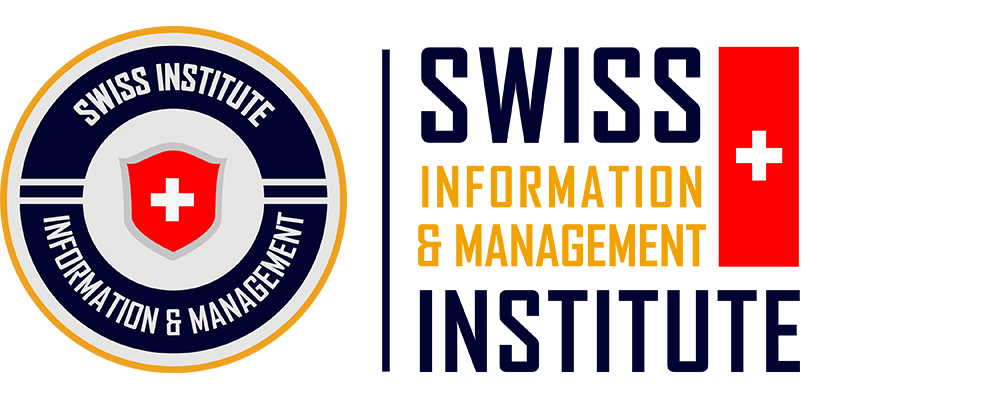Ph.D in Management - Logistics and Supply Chain Management Research (By Publication)
Student visa for full-time students
The Ph.D. in Management – Logistics & Supply Chain Management Research program at Asia Metropolitan University (AMU) is fully accredited by MQA (MQA/FA10029). AMU is a university recognized by the Malaysian Ministry of Higher Education (DU054(J)) and is ranked Top 7 in the ASEAN region according to the AppliedHE Private University Ranking: ASEAN 2024.
The program is structured as a full-time study program with a student visa. In case candidates wish to study part-time or online, they may apply separately and submit an independent application. Doctoral candidates participating in the program receive step-by-step research supervision, enabling them to confidently complete their doctoral thesis and publish 5 international publications.
“Full-time students are also eligible to apply for a student visa to study in Malaysia, gaining an opportunity to experience a vibrant academic environment.”
Along with globally recognized qualification, the SIMI Swiss Doctorate program understands what students need:
- Full-time Student Visa (Optional).
- English Certificate provided within six months of starting the program.
- Stay updated with the latest trends through participation in Colloquium.
- Modular research supervision helps doctoral candidates progressively complete their research.
- Expand your professional network.
- Academic and research support throughout your studies in Malaysia.
- Support for 5 international publications.
- Edutourism Malaysia Experience – Combining academic learning with cultural exploration.
Qualification within a Swiss Doctorate Program:
- Doctor of Philosophy (PhD) in Management awarded by Asia Metropolitan University, with the field of program and title of thesis displayed on the Academic Transcript from Asia Metropolitan University (AMU), Malaysia
- Doctor of Logistics and Supply Chain Management from the Swiss Information and Management Institute (SIMI Swiss) (awarded upon SIMI’s recognition of results from AMU)
International Accreditation
SIMI is accredited at both the institutional and programmatic levels by ASIC, HEAD, ISO 21001:2018, OTHM, and Qualifi, which is recognized by Ofqual.
Full time Student Visa
As a full-time program, doctoral students can be provided with a full-time student visa in Malaysia if needed.
Step by Step Supervise
Comprehensively guided by multiple supervisors through modular supervision and the international publication process.
Academic & Research Support
The academic, research and language support system helps students overcome challenges so they can focus solely on excelling in their studies.
Courses & Research Activities
1. Course: Advanced Research Methodology
This course is designed to enhance existing knowledge of research methods by introducing complex research design and advanced techniques for analyzing and interpreting literature, as well as higher-level methods for analyzing both qualitative and quantitative data.
Upon completing the course, doctoral will be confident in developing a Research Proposal and initiating the implementation of their doctoral thesis.
2. Task: Complete the Research Proposal
The research direction, or Research Proposal, serves as a blueprint for the research conducted by doctoral researchers. Therefore, the more aligned the research direction is with the researcher’s interests and goals, the more it ensures the successful and efficient completion of the doctoral thesis.
At this stage, researchers will begin writing their Research Proposal (which is also the goal of the first course). Doctoral researchers will receive the following support:
- Templates and forms.
- A consultation channel with professors specializing in business research.
- English language and format checks.
- Guidance on essay writing and citation using APA/Harvard methods.
3. Task: Participate in Colloquium 1
Doctoral students will participate in Colloquium 1, organized by AMU in collaboration with its partners. Participation in the Colloquium is mandatory, and researchers can join in various formats: on-campus or online.
The Colloquium serves as a platform for doctoral researchers to expand their specialized knowledge, engage with faculty members, supervisors, and fellow researchers to discuss and present their research directions and findings.
At the conclusion of the Colloquium 1, doctoral researchers will have the opportunity to meet individually with their supervisor to finalize their Research Proposal before proceeding to the defense stage.
4. Task: Defend the Research Proposal
Once the Research Proposal is completed, doctoral researchers will defend their proposal before the academic committee of AMU. This defense allows doctoral researchers to receive valuable feedback and ensures their research aligns with the highest academic standards.
Successfully defending the proposal is a key milestone in the doctoral journey, setting the foundation for the subsequent phases of research and thesis development.
5. Task: Continue Research and Complete the Doctoral Thesis
Doctoral researchers will continue developing their Research Proposal into a complete doctoral thesis under the guidance and support of the following:
- Supervisor: Responsible for overseeing the entire research process of the doctoral researcher.
- Module Supervisors: Provide workshops or activities tailored to specific groups of students, ensuring they acquire the necessary knowledge to complete their research.
- Academic Support System: Offers assistance such as English language support, plagiarism checks, and formatting in APA or other required styles.
6. Task: Participate in Colloquium 2
Doctoral students will participate in Colloquium 2, organized by AMU in collaboration with its partners. Participation in the Colloquium is mandatory, and researchers can attend in various formats: on-campus or online.
The Colloquium serves as a platform for doctoral researchers to expand their specialized knowledge, engage with faculty members, supervisors, and fellow students to discuss and present their research directions and findings.
At the conclusion of Colloquium 2, doctoral researchers will have the opportunity to meet individually with their supervisors to finalize their Thesis before proceeding to the final defense before the academic committee of AMU.
7. Task: Defend the Doctoral Thesis to the AMU & SIMI Swiss Academic Committee in Malaysia
After completing their research, doctoral researchers will bind their thesis and submit it to the academic committee of AMU.
The researchers will then proceed to defend their doctoral thesis before the academic committee of AMU and SIMI Swiss.
Following the defense, researchers will receive feedback for potential improvements (if any) from the academic committee. Based on this feedback, they will refine their research until it is fully complete.
During this finalization process, researchers will continue to receive guidance from their supervisors and support from the academic support system.
8. Course: How to Publish Your Research Paper
Once doctoral students have successfully completed their research, SIMI Swiss offers a specialized course, “How to Publish Your Research Paper,” to guide them through the process of transforming their Thesis into a publishable academic paper. This course not only supports the completion of their program but also enhances their academic and professional standing through publication.
9. Task: Publish an International Academic Paper
After successfully completing their doctoral research and participating in the “How to Publish Your Research Paper” course, doctoral researchers are equipped to transform their completed thesis into an international publication.
Note: Outstanding researchers may have the opportunity to publish an international paper as early as the completion stage of their Research Proposal.
Research Publication Stage
1. Modular Supervision Model
Structure: The Modular Supervision Model organizes the research supervision process by dividing it into distinct modules, with each module (such as a chapter or specific section) assigned to a specialist in that particular area.
2. Research Supervisor Process
AMU and SIMI Swiss understand that providing support and guidance to doctoral researchers throughout the research process and international publication not only reduces unnecessary stress and challenges for the researchers but also contributes valuable and high-quality research to society.
With the unique Modular Supervision Model, doctoral researchers will gradually complete their PhD research, publish international papers, and meet the exceptionally rigorous standards of SIMI Swiss.
Learn more about the Research Supervision Process HERE.
3. Guidance on Publication
SIMI Swiss’s Doctorate by Publication program is renowned for its guidance and support, helping researchers not only complete their research but also successfully publish five international papers. The international publication guidance process at AMU is implemented through the following steps:
- Guidance on selecting the appropriate journal
- Providing templates and methods for completing the submission
- Submitting the paper to the journal
- Guiding revisions based on feedback from the journal’s scientific board
- Finalizing the paper for publication
4. Guidance on Revisions and Format Support
After submitting a research paper to an international journal, the editorial board typically provides feedback, often suggesting revisions to improve the paper before it can be accepted for publication. At AMU, doctoral researchers receive comprehensive support to successfully navigate this critical stage of the publication process. Support activities include:
- Detailed evaluation of the feedback with guidance from the research supervisor;
- Assistance in refining, analyzing, and revising the paper to ensure it meets the journal’s standards;
- Guidance in reformatting the paper according to the journal’s specific requirements;
- Coaching on how to professionally and effectively respond to reviewer feedback. With personalized guidance and formatting support, researchers can confidently resubmit their revised paper, significantly increasing the likelihood of acceptance and publication.
This process ensures that their research meets the high standards of international journals, enhancing both their academic credibility and professional expertise.
Entry requirements & Learning methods
1. Entry Requirements
In addition to the entry requirements, candidates applying to the program are also assessed for their suitability by the admissions committee before joining the program to ensure that they can acquire and benefit from the program.
Entry requirements:
To enroll in this program, learners must be over 24 years old and meet at least one of the following criteria:
- A Master’s qualification in Majors from accredited universities; or
- A Level 7 EQF diploma or equivalent. Level 7 Diploma must be from organizations that are authorized to issue qualifications and have been accredited
English requirements:
If a learner is not from a predominantly English-speaking country, proof of English language proficiency must be provided.
- IELTS 6.0
- TOEFL iBT: 60
- Pearson Test of English: 59
- Cambridge English Qualifications and Test: 169
Please note:
- In case of not having proof of English language proficiency, learners must provide it within 06 months.
- SIMI Swiss and AMU does not accept entry qualifications from counterfeit universities, Diploma Mills, or universities accredited by unreliable accreditation agencies.
- SIMI and AMU reserves the right to make admissions decisions based on the requirements of recognized agencies and the global quotas of the program.
2. Learning methods
Depending on the individual circumstances of the doctoral student, they may choose to apply for a full-time student visa or opt out. It is important to note that, if applying for a full-time student visa, doctoral students must comply with the regulations set by the Malaysian government, which include a health examination, a minimum residency period in Malaysia, and the payment of the student visa processing fee.
Group 1: Doctoral students Applying for a Full-Time Student Visa
- Doctoral students in this group will travel to the Malaysia campus to attend their first course and apply for a full-time student visa.
- They are required to stay in Malaysia for a minimum of 4 weeks to complete all necessary procedures, including a health examination.
- During this period, doctoral students will take their first course, be assigned a supervisor, and receive a detailed introduction to the program structure and its requirements.
Group 2: Doctoral students Not Applying for a Full-Time Student Visa
- Doctoral students in this group will travel to the Malaysia campus to attend the first course without applying for a full-time student visa.
- They will complete the first course, be assigned a supervisor, and receive an introduction to the program structure and requirements, similar to those applying for a visa.
- No mandatory 4-week stay in Malaysia is required, and they are free to return to their home country after completing the course without visa-related obligations.
3. Academic Support
We understand that pursuing an accredited postgraduate program can be both exciting and challenging, especially for busy adult learners. To help you overcome these challenges, we’ve created the SIMI Swiss Supporting Systems, designed to guide you through any difficulties during your studies.
For a full overview of the support available, be sure to watch our informative videos, offering help at every stage of your academic journey.
Program accreditations
1. Accreditation review guidelines by SIMI Swiss
SIMI is the first higher education institute in Zug, Switzerland, to achieve comprehensive international accreditations at both the organizational and program levels. The video below guides you through the step-by-step process of verifying and checking SIMI Swiss's accreditations and recognitions.
- Watch this video to learn how to verify SIMI Swiss's accreditations and recognitions HERE.
- View the complete accreditation system of SIMI Swiss HERE.
Sample Certificate of Doctor of Logistics and Supply Chain Management:

2. Refer to SIMI Swiss Program information in SVEB Switzerland
SVEB Switzerland (Schweizerischer Verband für Weiterbildung) is the Swiss Federation for Adult Learning and serves as the national umbrella organization for adult education in Switzerland. SVEB is recognized as the leading authority in Switzerland for promoting and supporting lifelong learning and professional development through a wide range of educational programs and certifications.
Benefits of the SIMI Swiss Programs Published in SVEB:
- Officially on the Swiss federal portal: Being published in SVEB gives the SIMI Swiss program official publication in Switzerland, validating its quality and adherence to Swiss educational standards.
- Increased Credibility: Membership and listing with SVEB enhance the credibility of the SIMI program, making it more attractive to prospective students and employers who value SVEB-approved programs.
- Professional Advancement: Programs listed with SVEB are often aligned with the needs of the Swiss job market, increasing graduates' employability and supporting their career progression within Switzerland.
- Access to a Wider Network: Association with SVEB connects the SIMI Swiss program to a broader network of educational institutions, professionals, and employers across Switzerland, offering opportunities for collaboration, networking, and knowledge exchange.
- Compliance with Swiss Standards: SVEB ensures that SIMI Swiss programs meet high educational standards, including up-to-date content, qualified instructors, and effective teaching methods, enhancing the overall learning experience for students.
- Support for Lifelong Learning: SVEB’s focus on adult education means the SIMI Swiss program aligns with lifelong learning principles, supporting students in their ongoing professional development.
Check the SIMI programs on SVEB HERE.
3. Accreditation & Recognition of Asia Metropolitan University
- Asia Metropolitan University (AMU) is a distinguished institution, currently ranked 72nd in the HE Higher Education Rankings.
- Fully recognized by the Ministry of Higher Education, AMU upholds the highest standards of academic excellence and quality. SEE HERE
- PhD in Management programs are accredited by the Malaysian Qualifications Agency (MQA), ensuring that they meet national and international benchmarks. SEE HERE
- With a strong reputation for academic rigor and comprehensive educational offerings, AMU is committed to developing professionals and leaders equipped with the knowledge and skills to excel in their respective fields.
Guidelines of how to check the accreditation and recognition of AMU HERE
You will get
Full time Student Visa
Quality Publications
Modular Supervision
Academic Support
Update Trend
All Doctorate Programs (Asia Campus)
Fully Accredited
Multi Recognition
Ph.D in Management – Business Administration Research
Powered by Swiss Doctorate
Ph.D in Management – Education Management Research
Powered by Swiss Doctorate
Ph.D in Management – Logistics & Supply Chain Management Research
Powered by Swiss Doctorate
Ph.D in Management – Hospitality Management Research
Powered by Swiss Doctorate
Ph.D in Management – Healthcare Management Research
Powered by Swiss Doctorate
Ph.D – Information Technology Research
Powered by Swiss Doctorate
Ph.D – Psychology Research
Powered by Swiss Doctorate
Ph.D in Maritime Supply Chain
Powered by Swiss Doctorate


